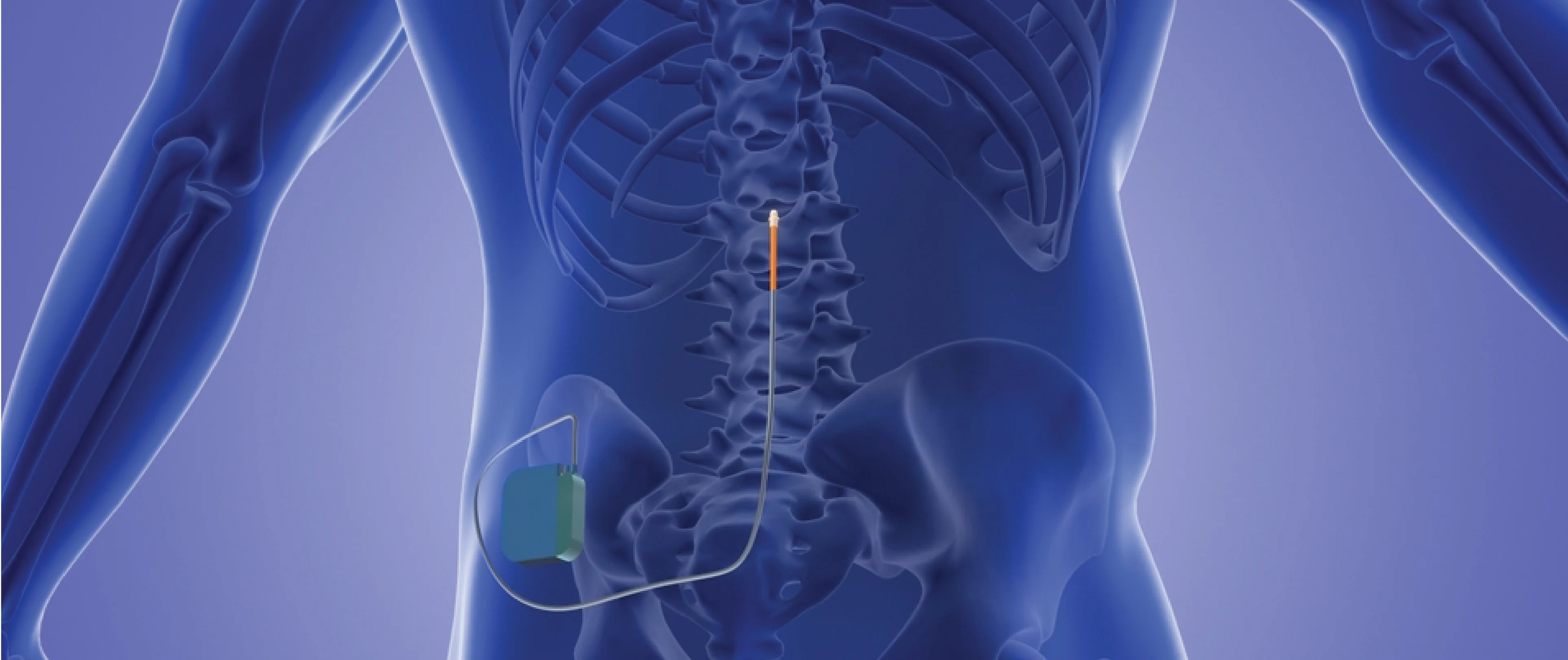
Book an Appointment
Call Us09958011121Major Indications of Epidural Stimulation
Epidural stimulation is one of the many advancements that we have witnessed in the field of neurorehabilitation over the past few years and it has become a beacon of hope for patients with a wide range of spine-related conditions and injuries. The technique involves surgical implantation of electrodes in the epidural space, ie. the outer layer of the spinal cord, to deliver controlled electrical impulses for targeted stimulation. This is done to improve the flow of nerve signals to restore voluntary function, muscle strength and autonomic function. The fact that epidural stimulation offers personalized programming that allows patients to adjust the intensity of stimulation, makes it a preferred choice for most patients, as well as doctors specializing in spinal cord injury treatment in Delhi.
Spinal Cord Injuries (SCI): Epidural stimulation is one of the most common interventions used for helping patients with spinal cord injuries, especially incomplete ones. SCI refers to any kind of damage to the spinal nerves and nerve fibres, that are responsible for transmitting neural signals. This can happen in any part of the spinal cord and can be the result of a variety of different factors, including road traffic accidents, sports injuries, chronic disease or violent blows. These are broadly classified into two categories - Complete spinal cord injuries, in which complete neural connectivity is lost and Incomplete spinal cord injury, in which some neural connectivity is preserved.
Compromised motor function: Motor function refers to the ability of the body to perform various voluntary tasks like walking, running, jumping, maintaining posture, typing, writing and so on. Epidural stimulation can work wonders for patients with limited motor function as it can help restore affected neural pathways to re-establish the flow of neural signals. Epidural stimulation may also help to enhance muscle strength, thereby enabling them to provide better support to the spine.
Autonomic Functions: These are involuntary functions that are performed by our body and are crucial for our survival, such as digestion, bladder function, bowel functions, absorption of nutrients, maintaining blood pressure, and regulating heart rate and body temperature. Epidural stimulation can help to restore and improve these functions in patients with severe spinal cord injuries and trauma, allowing them to lead a better life.
Neurological Disorders: Epidural stimulation may be recommended for patients suffering from conditions like Parkinson's disease or multiple sclerosis to help in the effective management of the symptoms associated with these conditions. Parkinson’s disease is characterised by movement-related abnormalities like tremors, rigidity, gait issues and bradykinesia. Multiple sclerosis, on the other hand, is an autoimmune disorder in which a person’s immune system attacks the nerve fibres and disrupts neural connectivity.
It is pertinent to note that despite being a very effective treatment modality, epidural stimulation might not be an option for everyone. There are certain considerations and criteria that have to be taken into account. The procedure only works for certain types of spinal injuries and whether it is the best option for a particular patient is only decoded after thorough evaluation and assessment, analyzing factors like the level of injury and its severity. It is predominantly reserved as an option for patients who have incomplete spinal cord injuries. The procedure may not work for everyone in the same manner and the results may vary. It is a promising avenue for some and the best way to know if you are one of them, is to consult the experts specializing in spinal cord injury treatment in Delhi, today.
 By -Dr Aaksha Shukla |
November 21, 2023 | 9 Min Read
By -Dr Aaksha Shukla |
November 21, 2023 | 9 Min Read
Parkinson’s Disease Treatment Hospital in India
Brain Stroke Treatment Hospital – Emergency Care
Stroke Paralysis Treatment Hospital – Advanced Neuro Care
Paralysis Treatment Hospital in India – Cost & Recovery
Brain Infection Symptoms, Causes, and When to Seek Emergency Care
Is Spine Surgery Right for You? Here’s How to Know
Brain Health at Every Age: Preventive Neurology Tips
International Patient Guide: Visiting India for Neuro & Spine Treatments
Robot-Assisted & Navigation-Guided Surgery: Safer Brain & Spine Procedures
Sports Injury Recovery: How Arthroscopy Helps You Heal Faster?
How Deep Brain Stimulation (DBS) Helps in Parkinson’s & Tremor Control
Early Warning Signs of a Brain Tumour & When to See a Neurosurgeon
Signs of a Stroke: When to Seek Emergency Neuro Care
Best Neurosurgery Hospitals in Delhi NCR: A Detailed Guide
Minimally Invasive Spine Surgery: Benefits, Cost & Recovery
Best Tips for Sports Injury Recovery
Guide to Stroke Prevention and Recovery
How to Manage Parkinson’s Symptoms Effectively

